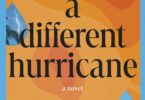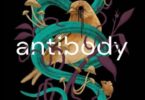by DJ Fraser
This is the second installment of a series on Canadian queer publishers by DJ Fraser. This series explores Canadian queer publishing across genres, houses, and provinces. For this children’s literature month, we are looking at Flamingo Rampant, the children’s publisher started by S. Bear Bergman, author of Butch is a Noun, etc.
Bear Bergman’s friends want to call him the “great and powerful” S. Bear Bergman. He dismissed this silly idea, citing it as an amusing threat when we were on the phone, discussing his micropress, Flamingo Rampant.
“It actually has a pretty good origin story,” Bear intoned, as he launched into it. No doubt it does, I thought to myself as I waited, my fingers hovering over the keyboard before me.
It was back in the aughts, when Bear was approached to write a story by a friend who was representing the Gender Spectrum conference (check out the organization and conference here). Bear’s friend wanted some stories to read to the children attendees while the parents were busy participating in workshops at the conference, and so Bear wrote two stories, Backwards Day and The Adventures of Tulip, Birthday Wish Fairy. There had been literally no positive and affirming stories for children about diversity in gender and sexuality in existence before friend Tanner had inquired and maybe just solicited Bear to write some of these into existence.
After he had finished reading to a group of three-to-eight-year-olds, the arrival of popsicles tore the kids’ attention away from the storyteller in front of them, but he was, in fact, swarmed. By parents. Asking where they could get these books, because they needed them.
And addressing the needs of these parents, who continued to inquire about where and when they could access these stories, was eventually what Bear did. Publishing the first two books in 2012, he received support and kudos from the queer community, which was saturated in children’s lit that mainly represented bullying, gender shaming, or a “candy floss” variety of books that tried to make the existence of trans people palatable for a mainstream audience.
 After the publication of the first two books, Bear continued to watch the lit industry publish books that reflected the negative reality of bullying, difference, and oppression in society.
After the publication of the first two books, Bear continued to watch the lit industry publish books that reflected the negative reality of bullying, difference, and oppression in society.
Three factors in a week turned his attention fully to the task at hand: creating lit for kids that would be affirming, positive, and most of all, not manuals on being bullied and the often depressing reality of the status quo for gender-independent children.
The first moment was the release of the statistics from the University of Wisconsin’s Cooperative Children’s Book Center, which detailed that, of books for children released, over 90 percent of children’s lit featured white families, over 70 percent featured boys as central characters, and of families represented, over 98 percent were straight.
Those statistics alone point to a lack of representation, but Bergman saw this first-hand when he witnessed children of colour so happy and excited to see themselves represented by non-white characters.
 Living in a white supremacist society and seeing this kind of reaction to his stories, Bear felt highly uncomfortable with this dearth in representation, and this added another reason to the pile to continue with Flamingo Rampant.
Living in a white supremacist society and seeing this kind of reaction to his stories, Bear felt highly uncomfortable with this dearth in representation, and this added another reason to the pile to continue with Flamingo Rampant.
But the third and final moment came when his child, Stanley, four, asked to stop reading bedtime stories one night, because all the new books about queer families and gender independence only stood to reinstate the sad truth of so many gender-independent kids and families: that bullying and gender shaming were what to expect in the schoolyard and in life.
So, with profound disappointment and a hopeful heart, Bergman set up another Kickstarter, and this is how Flamingo Rampant became a fully operating press, releasing its first—of hopefully many—packages this past year. The 2015 package of six books is sold together and comes with a spiffy backpack suitable for kids and/or their adults, I might add. You can also add on Bear’s first two books that started it all for one awesome and fantastic parcel of positive and affirming stories for the families and children in your life.
Bergman emphasizes that, although there is a solid team that works on Flamingo Rampant, including designers, artistic directors, authors, and illustrators, this operation runs much like a kitchen-table project. The kitchen-table model of organization is often used to represent activist or independent projects that happen outside the mainstream, coming to reality instead through activities organized around a kitchen table or community meeting place. The personal as political of course still has saliency in our era, and the urgent need that Bear heard coming from parents echoes that deeply personal, but also community-based need for literature that celebrates and affirms our children, and our communities, as feminist, anti-racist, and loving for all.
 Crowdsourcing startup money let Bear actually pay his team of producers, something that is often missing from many independent publishing venues. An important part of Bergman’s vision was initially to reward his artists for their work, and not force them into artistic burnout with no return. This is one way in which the environment around Bergman, living in Toronto now with his husband and family, has shifted since he left the United States. Just as much as Bergman does not want to put his talented authors and artists into a situation that forces them to choose between creative work and a paycheque, the Canadian system, as Bear sees it, is not quite as severe for queers working within it:
Crowdsourcing startup money let Bear actually pay his team of producers, something that is often missing from many independent publishing venues. An important part of Bergman’s vision was initially to reward his artists for their work, and not force them into artistic burnout with no return. This is one way in which the environment around Bergman, living in Toronto now with his husband and family, has shifted since he left the United States. Just as much as Bergman does not want to put his talented authors and artists into a situation that forces them to choose between creative work and a paycheque, the Canadian system, as Bear sees it, is not quite as severe for queers working within it:
The cohort of people doing queer work in Canada is more robust, there are more queers of colour and trans folks who have some leisure time, or arts money to make work. Everyone in the States is working hella hard to feed themselves. With the system the way it is, you can only get so rich or so poor… Everyone is a little less panicked. People are a little more present, a little more generous, whatever you want to call it.
This kind of social protection, although certainly in question under a continuing Conservative government, provides, at least for now, a positive point in publishing north of the 49th parallel. Being able to publish fun and inclusive stories, designed by wonderfully talented authors and artists, is one of the most amazing products of our social environment. It gives our community voice, and the ability to present a positive outlook on the future, one that all kids should be able to enjoy. Now, thanks to Flamingo Rampant, we can share literature with our kids and the kids in our community and know that we are changing the status quo, day by day.
When I asked Bear about a teaser for next year, his tone changed, and immediately he gave me this: “All I will say is… three parents, all superheroes!” I’m already too excited about this, and I’m sure my nephews will be, too.
Buy all the books and stay informed about new projects from Flamingo Rampant by checking out their website.







